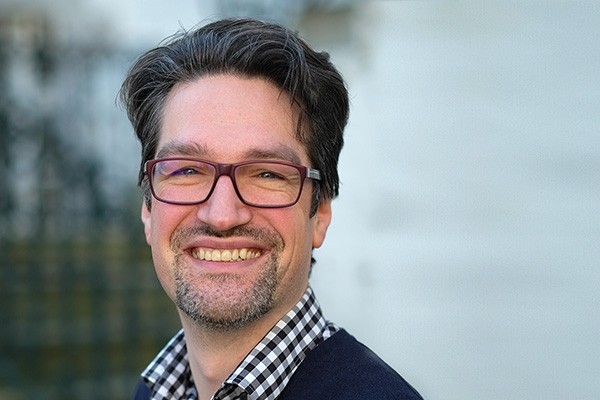Rory R. Koenen studied biochemistry in Sittard (B.Sc.) and at the Radboud University in Nijmegen (M.Sc.), the Netherlands from 1993-1999. He completed the training programme 'Vascular Biology, Cardiac Function and Adaptation, Thrombosis and Hemostasis' (2003) and his Ph.D. in biomedical sciences (2005) at the Cardiovascular Research Institute Maastricht (CARIM), Maastricht University, The Netherlands. He then moved to the Institute of Molecular Cardiovascular Research at RWTH Aachen University in 2003, chaired by Christian Weber where he was granted a tenured faculty position in 2008. In 2011, Dr. Koenen moved along with Christian Weber to Munich and continued his work at the Institute for Preventive Cardiology (IPEK) at the Ludwig-Maximilians-University in Munich, Germany before moving back to CARIM in 2012 as the recipient of a VIDI grant. He is currently an associate professor and holds a double affiliation as group leader at CARIM and at IPEK.
Honors and Awards
2003 Young Investigator Award, XIXth Congress of the International Society on Thrombosis and Haemostasis, Birmingham, UK.
2005 Third Prize in the 3rd university competition "Patente Erfinder".
2006 1st Poster Presentation Award in the 4th Dutch-German Conference of the Molecular Cardiology Groups.
2007 Honorary member of the Romanian Society for Cell Biology.
2007 EVGN Young Investigator Award, 4th European Meeting on Vascular Biology & Medicine, Bristol, UK.
2009 Oskar-Lapp-Prize of the Oskar-Lapp-Foundation in Stuttgart, awarded at the 75th Meeting of the German Society for Cardiology (DGK) in Mannheim.
Research focus:
I am currently investigating the inflammatory functions of platelets and the role of particular inflammatory molecules in vascular disease. A VIDI grant was awarded to a project that aims to characterize the molecular aspects of chemokine secretion from platelets and the role of this secretion in cardiovascular diseases. Inflammatory leukocyte recruitment is currently studied from the viewpoint of the endothelial cells. Here, the versatility of a particular adhesion molecule, termed JAM-A, is in special focus. JAM-A can be redistributed from intercellular junction pools to the apical cell surface. Thus, JAM-A can rapidly become available for leukocyte recruitment. This process was found to drive monocyte recruitment during atherosclerotic plaque development.
Previously focusing mainly on atherosclerosis, the topic of my research will slightly shift towards flow- induced vascular remodeling and vascular disorders that occur on a shorter time scale, such as venous thrombosis. In addition, I will set up novel methods for early diagnosis of vascular disease, including functionalized antibodies against chemokines and against JAM-A for SPECT measurements. Moreover, ELISA-based methods have been established for determining soluble JAM-A, CCL5 and CXCL4 in biologic specimen and studies are ongoing to (further) establish these molecules as biomarkers.
Funding information:
2012-2017: ZonMW, VIDI 016.126.358, PI: Propellants of atherosclerosis; molecular aspects of RANTES- and PF4-release by activated platelets. €800,000

